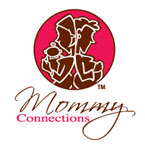Top parenting stories this week
Baby Q&As
Expert: Tarra Elliott, BSc, DDS
December 28th, 2009
My 16-month-old only has four teeth. Should I worry? 
There is no need for concern. Although averages exist for when to expect your baby’s first teeth, they are just averages and variation is normal.
Some babies get their first teeth within their first three months, while some don't get any teeth until 12 to 18 months. And some babies seem to get teeth slowly, whereas others get their primary, or "baby," teeth all at once. Most baby teeth will have appeared by age three. There is not much you can do in the meantime except to wait and see and talk to your dentist if you have any concerns.
Tarra Elliott, BSc, DDS, is a dentist practicing in Toronto and Markham. She regularly brushes her toddler's teeth with a dab of "real" toothpaste. She suggests checking out youroralhealth.ca for more information on toddler tooth care.
Permalinkdentist, baby, teeth, 16-month-old, normalExpert: Alyson Schafer
December 14th, 2009
My child has been daytime potty trained for two years but still wets the bed most nights. What can I do? 
Night dryness is the last potty training step to develop. There is a hormone known as antidiuretic hormone (ADH) that needs to be produced in order to slow the production of urine during evening sleep cycles. Most children have sufficient ADH to control nighttime bedwetting between ages 2.5 and 4 but it is perfectly normal not to have sufficient ADH until age 7. If your child is under 7, there’s nothing you can do except allow them to wear a nighttime pull-up or use washable sleep pads. Above all, remain positive and do not shame your child. They'll get it eventually.
Alyson Schafer is a psychotherapist and one of Canada's leading parenting experts. She is the best selling author of Breaking the Good Mom Myth (John Wiley and Sons 2006) and Honey, I Wrecked The Kids (John Wiley and Sons 2009). Her popular TV call-in show, The Parenting Show, is now in its fourth season. For more on her principles, rule and tools for parenting visit: alyson.ca
Permalinkpotty training, night time wetness, daytime potty trained, alyson schaferExpert: Dr. Jennifer Shu
October 5th, 2009
When do babies start to talk? 
Most babies start to babble between six and nine months of age. Around one year your baby will usually speak her first word. By 18 months, a baby should have a 10- to 20-word vocabulary. Around two years, there should be about 50 words in your child’s vocabulary and she should be putting two words or more together into phrases.
If, at any time, you are concerned your child’s speech may be delayed or not advancing as expected, an evaluation by a speech therapist is recommended. Related problems include difficulty swallowing, chewing, sucking, and excessive drooling–all signs that a baby’s oral muscles may not be working properly. A hearing test will likely also be advised because poor hearing can lead to delayed speech and if the hearing problem is treated, the speech may improve.
Dr. Jennifer Shu is a board-certified pediatrician in Atlanta. Her passion is educating parents on all topics relating to children. Dr. Shu is editor-in-chief of the American Academy of Pediatrics' Baby & Child Health: The Essential Guide from Birth to 11 Years and co-author of the award-winning book Heading Home with Your Newborn and Food Fights, both published by the AAP.
An enthusiastic and experienced writer and public speaker, Dr. Shu is a member of the Parents magazine Board of Advisors and an editorial advisor for the AAP's Healthy Children doctor's office publication. She has been featured as a guest expert on CNN, Headline News, MSNBC and Discovery Health, as well as in US News & World Report, USA Today, and numerous parenting magazines, newspapers and medical publications. www.jennifershu.comPermalinkbaby, talk, babies, when do babies talk, first words- Permalinkhemangioma babies, birthmark, hemangiomas, newborns, salmon patch, angel's kiss, stork bite
Expert: Elizabeth Pantley
August 24th, 2009
My baby and toddler share a room. How can I ensure they both sleep? 
Have a very specific bedtime routine for both children. Although your newborn will have a less predictable schedule, he will settle in over the next few months. If you keep their bedtime routine consistent, you'll have fewer issues getting your children to sleep.
Since your children are different ages, chances are they will not go to bed at the same time. Once your first child has been put to bed, keep the room dark. Then, do any bedtime ritual with your second child in a separate room. When you put her to bed, use only a night light as harsh lights may wake your first child.
Finally, play soft music or white noise (a recording of ocean waves or rain works well) throughout the night. This will help drown out any noises your children make so they don't wake each other up during the night.
Elizabeth Pantley (www.pantley.com) is the author of eight parenting books, including: The No-Cry Sleep Solution. Based in Washington, Pantley is the president of Better Beginnings Inc. (a family resource and education company).
Permalinkbaby toddler share room, baby sleep, toddler sleep, baby bedtime, toddler bedtime, children sleep, bedtime routine- Permalinkwhen is my baby ready for finger foods, starting solids, textured foods, infant nutrition, finger foods
Expert: Dr. Lisa Kellett, M.D., F.R.C.P.(C), D.A.B.D.
May 4th, 2009
My infant has baby acne – what should I do? 
Baby acne is very common and is most likely due to hormones, says Dr. Lisa Kellett. It usually shows up as small whiteheads on an infant's cheeks, forehead or chin.
"The best treatment for baby acne is to do absolutely nothing," says Dr. Kellett. "It will usually go away by itself in a couple of weeks, although it can take up to a month or two." She recommends using plain water or a mild cleanser at bath time and gently patting baby's skin dry. "Don't scrub, pick at the spots or apply acne medications as this will only irritate the skin further," she says. If your baby's acne hasn't cleared up within about three months, check with your doctor to rule out an infection or other health issue.
Dermatologist Dr. Lisa Kellett is a Fellow of the Royal College of Physicians of Canada, a Diplomat of the American Board of Dermatology, a member of the Canadian Dermatology Association, the Canadian Laser Aesthetic Surgery Society, and the Toronto Dermatological Society. For more information and skincare advice from Dr. Kellett, check out www.dlkonavenue.com and www.skinlibrary.comPermalinkbaby acne, infant acne, baby pimples, whiteheads, baby skinExpert: Lisa Weston, RM
April 6th, 2009
What’s the best way to deal with baby’s gas pains? 
Newborn gas pains are common, especially in the first few weeks. It's always best to have your midwife or doctor assess the baby to ensure there are no health concerns. You want to make sure the baby is healthy, gaining weight, sleeping and eliminating normally. A professional can also assess whether there are other symptoms and if the gas pain episodes are short and if your baby's discomfort is relived by passing gas. Once you are sure the gas pains are normal, you'll want to look at your baby's diet.
A breastfed baby may be gassy while learning to cope with milk flow. If the baby is more than a few weeks old, there may be a fore- and hindmilk imbalance. The milk at the beginning of a feed is lower in fat and higher in sugar than the milk at the end. If baby is drinking mostly foremilk from one breast, then being switched to the other, she may experience: gas, greenish poops, less sleeping time, and less weight gain. If your baby drinks fully from one breast (switching to the other only if still hungry), she will get a balance of fore- and hindmilk. Baby will be less gassy, have normal yellow poops with little white seedy bits, often sleep better, and experience optimal weight gain.
If baby is not breastfed, do a thorough review of formula: brand, how it is prepared, and how much she is taking. Simple adjustments may reveal a cause for excessive gassiness.
Burping techniques should be reviewed for both breastfed and formula fed babies. Not all babies need to be burped, but if your baby is gassy, effective burping can help. Also, try using comfort holds and distraction, as well as massage, warm baths and leg bicycling to relieve gas.
Lisa Weston, is the Vice President of the Association of Ontario Midwives, one of the founding members of the Sages-Femmes Rouge Valley Midwives practice, and served as the first Division Head of Midwifery.Permalinkgas pains, newborn, burping, baby, milk flow, breastfeeding, formula, symptoms, common- Permalinkscar, stitches, scars, toddler, baby, heal, polysporin, vitamin e, promote healing, jeremy friedman, sick children, toronto
Expert: Steve and Andrew Hammond
February 22nd, 2009
When can I start using a pillow and stuffed toys in my child’s crib? 
Don't place anything in your infant's crib until you are completely satisfied your child has the ability to move with ease. Once baby has mastered rolling you can give her a stuffed toy as a transitional "comfort" object.
As a general rule, it is much better for a baby to sleep on a flat surface for the first year. Pillows are typically safe around 14 to 16 months of age, but it depends on the child. Before placing a pillow in your baby's crib, you must be 100 percent confident she is able to roll over with ease and sit for a prolonged period without any difficulty.
Steve and Andrew Hammond are co-owners of Baby First Aid–an Ontario-based company that specializes in baby and toddler emergencies.
Permalinkpillow, crib, stuffed toys, safety, sleep, flat surface, first year, safe






